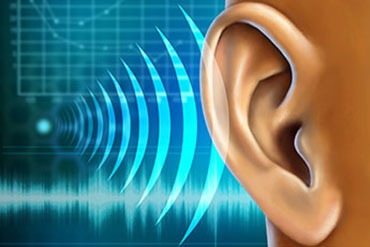Auditory Processing Therapy
 Auditory processing is a term used to describe what happens when your brain recognizes and interprets sound. It becomes disordered when something in the brain interferes with the recognition and interpretation process. The interference is commonly due to weak cognitive skills that use auditory processing elements.
Auditory processing is a term used to describe what happens when your brain recognizes and interprets sound. It becomes disordered when something in the brain interferes with the recognition and interpretation process. The interference is commonly due to weak cognitive skills that use auditory processing elements.
Central auditory processing disorder (CAPD) is an umbrella term for a variety of disorders that affect the way the brain processes auditory information. Cognitive skills training strengthens those weak areas so that there is no longer interference in the brain. There are a number of other alternative therapies out there for adults and children with CAPD. available.
Learning Disorders and Addiction
CPAD is one of a number of learning disorders that can affect the way a person’s brain uses information. The person may have trouble receiving, processing, storing, responding to or communicating information. These disabilities also affect a person’s psychological functioning and may lead to a co-occurring addiction. In fact some studies show 40% of people in addiction treatment have a learning disability, and as many as 60% of people in addiction treatment centers have a learning disorder, according to research.
If you or a loved one displays any of the following symptoms, it may be a sign of CPAD:
- Inability to listen effectively
- Difficulty sequencing the sounds of words
- Trouble perceiving high frequency sounds
- Confusion when faced with similar sounds
- Poor comprehension in noisy environments
- Excessive distractibility and short attention span
- Poor speech comprehension
- Misunderstanding and poor retention of oral messages
- Inconsistent responses to the same auditory stimuli
- Inability to follow directions
- Difficulty in expressing needs
- Academic problems, such as spelling, reading and comprehension
- History of chronic ear infections
- Behavior problems
- Social difficulties
Auditory Processing Disorders can often lead to frustration, feelings of incompetence or auditory overload. Other times it presents as aggression, disruption of others and cynicism about learning. Fortunately there are auditory systems effective in addressing the problem.
The Listening Program
 I have been a certified provider of The Listening Program for almost 20 years. The Listening Program is a therapeutic listening program that does Auditory Integration Training and Music-Based Auditory Stimulation. These types of natural remedies have been around for thousands of years.
I have been a certified provider of The Listening Program for almost 20 years. The Listening Program is a therapeutic listening program that does Auditory Integration Training and Music-Based Auditory Stimulation. These types of natural remedies have been around for thousands of years.
The Listening Program is a clinically-proven approach that trains the auditory system to accurately process sound. The Listening Program’s patent pending “ABC Modular Design” enables the listener to effectively exercise the auditory processing system providing “warm-up”, “workout” and “cool down” phases. Within these modules, the first phase, “A” relaxes the listener and prepares the auditory system for a more intensive stimulation of the “B” phase.
The listener is then returned to a relaxed state during the final “C” phase. Each daily listening session is approximately 30 minutes. Listening is done for five consecutive days with two consecutive days off. It is the responsibility of the certified provider to set the schedule of listening for each individual person to meet their needs.
I often recommend the Listening Program to client in my practice. It can be very helpful combined with traditional therapy and addiction counseling.




